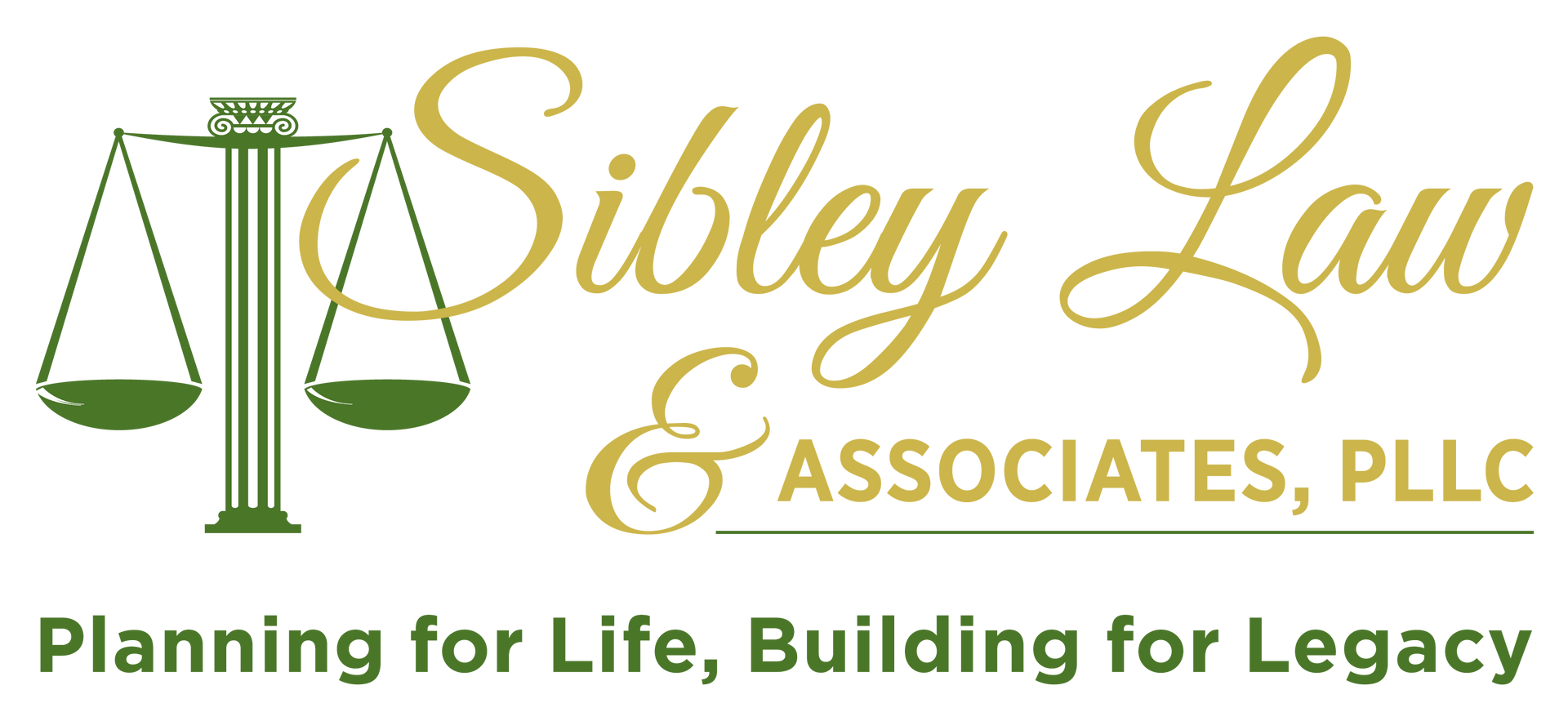April 10, 2025
Planning For Life...Building For Legacy. At Sibley Law & Associates, PLLC, this isn't just a tagline; it's the core principle guiding our work with families throughout Central Florida. We help individuals meticulously plan their estates to ensure their wishes are honored and their legacy is secure. However, even with the best intentions, the period following the loss of a loved one can sometimes become fraught with unexpected challenges. One of the most difficult situations that can arise is a will contest – a legal dispute challenging the validity of the deceased person's final wishes. The discovery of a will often brings a sense of closure, outlining the final intentions of someone dear. But what happens when a family member, heir, or beneficiary believes that the document doesn't truly reflect the deceased's wishes, or that it was created under improper circumstances? This is where the complex and emotionally charged process of contesting a will begins. Navigating a will contest requires not only a deep understanding of Florida probate law but also sensitivity, strategic thinking, and robust advocacy. This is where experience matters immensely. Attorney Dee Sibley , the Founding Attorney of Sibley Law & Associates, PLLC, is recognized as one of Central Florida's most experienced and trusted estate planning attorneys. With years spent both helping clients proactively plan their estates to minimize conflict and representing clients in probate litigation when disputes arise, Dee Sibley brings invaluable perspective and skill to these challenging situations. This guide aims to shed light on the process of handling contested wills in Central Florida, explaining the grounds for such challenges, the typical procedures involved, and the critical importance of experienced legal counsel. What Exactly is a Will Contest? A will contest isn't simply a disagreement over how to interpret a clause in a will. It's a formal lawsuit filed in probate court that challenges the legal validity of the entire will document, or specific parts of it. The person initiating the contest (the petitioner) essentially argues that the will presented for probate should not be considered the true, legally binding last testament of the deceased (the decedent). Under Florida law, only "interested persons" have the legal standing to contest a will. An interested person is typically someone who stands to gain financially if the will is invalidated or someone who would have inherited under a previous valid will or through Florida's intestacy laws (the laws governing inheritance when there is no valid will). This usually includes spouses, children, beneficiaries named in the current or a prior will, and heirs-at-law. Common Grounds for Contesting a Will in Florida A will contest cannot be based simply on disappointment or a feeling that the distribution is unfair. Florida law requires specific legal grounds to successfully challenge a will's validity. Dee Sibley and the team at Sibley Law & Associates have extensive experience navigating contests based on the following common grounds: Improper Execution (Lack of Formalities): Florida has very strict requirements for how a will must be signed and witnessed to be valid (outlined in Florida Statutes Section 732.502). These include: The will must be in writing. The testator (the person making the will) must sign it at the end, or another person must sign at the testator’s direction and in their presence. The testator's signing (or acknowledgment of their signature) must occur in the presence of at least two attesting witnesses. The witnesses must sign the will in the presence of the testator and each other. Failure to comply precisely with these formalities can render the entire will invalid. Lack of Testamentary Capacity: This ground alleges that the testator did not possess the required mental capacity at the time the will was signed . Under Florida law, testamentary capacity means the testator generally understood: The nature and extent of their property. The natural objects of their bounty (i.e., who their family members and loved ones were). The practical effect of the will they were signing (i.e., how it would distribute their property). Challenges often involve demonstrating conditions like dementia, Alzheimer's disease, severe illness, or the influence of medication impaired the testator's understanding at the crucial moment of execution. Medical records and witness testimony are key evidence here. Undue Influence: This is one of the most common grounds for will contests. Undue influence occurs when someone exerts such significant pressure or control over the testator that it overcomes the testator's free will, essentially substituting their own desires for the testator's intentions in the will. To prove undue influence in Florida, one typically needs to show: The alleged influencer maintained a confidential relationship with the testator. The alleged influencer was actively involved in procuring the will (e.g., arranging the attorney, being present at signing, isolating the testator). The alleged influencer is a substantial beneficiary under the will. If these factors are established, the burden often shifts to the proponent of the will to prove its validity. Fraud: Fraud occurs if the testator was intentionally misled into signing the will or including certain provisions based on false information. This could involve: Fraud in the Execution: The testator was deceived about the nature of the document they were signing (e.g., told it was something other than a will). Fraud in the Inducement: The testator signed the will based on misrepresentations made by someone who benefits from those lies (e.g., falsely telling the testator negative things about another family member to get them disinherited). Duress: While similar to undue influence, duress involves coercion through threats or actual harm, forcing the testator to sign the will against their true wishes. Mistake: Generally, a mistake in the inducement (the testator based their decision on an erroneous belief not caused by fraud) is not grounds to invalidate a will. However, a "mistake in the factum" (a mistake about the actual contents of the will or the nature of the document being signed) might be grounds for challenge under specific, limited circumstances. Revocation: A will contest might argue that the presented will is invalid because it was previously revoked by the testator. Revocation can occur by executing a later valid will or codicil (an amendment), or by a physical act (like burning, tearing, or destroying the will) coupled with the intent to revoke. The Will Contest Process in Central Florida: Navigating Probate Litigation A will contest is a form of probate litigation – a lawsuit conducted within the framework of the county probate court (e.g., Orange, Seminole, Osceola County Circuit Courts for Central Florida). The process generally involves these stages: Strict Deadlines: Florida law imposes tight deadlines for filing a will contest. Generally, an interested person must file a petition challenging the will before the court admits the will to probate or within a specific timeframe after formal notice of the probate proceedings has been served – often as short as 20 days, or 90 days from the Notice of Administration for others. Missing these deadlines typically bars the challenge permanently. Acting quickly is paramount. Filing the Petition: The contestant files a formal petition with the probate court outlining the grounds for challenging the will's validity and the relief sought. Discovery: Like other lawsuits, this phase involves gathering evidence. Attorneys use tools like depositions (sworn testimony), interrogatories (written questions), requests for production of documents (medical records, financial statements, attorney notes), and subpoenas to build their case. Motions and Hearings: Attorneys file various legal motions (e.g., motions to dismiss, motions for summary judgment) and argue them before the probate judge. Mediation/Settlement: Courts often encourage or require parties to attempt mediation – a confidential process where a neutral third party helps facilitate settlement negotiations. Many will contests are resolved through settlement agreements to avoid the cost, stress, and uncertainty of a trial. Trial: If settlement fails, the case proceeds to trial. In Florida, will contests are typically tried before a judge, not a jury. Both sides present evidence, examine witnesses, and make legal arguments. Judgment and Appeals: The judge issues a ruling either upholding the will or declaring it invalid (in whole or in part). If the will is invalidated, the court may admit a prior valid will to probate or declare an intestacy (meaning assets pass according to state law as if there were no will). The losing party may have grounds to appeal the decision. How to Handle a Will Contest: Practical Steps Whether you are considering challenging a will or find yourself needing to defend one, the stakes are high, both financially and emotionally. If You Are Considering Contesting a Will: Act Immediately: Due to the strict deadlines, consult with an experienced probate litigation attorney as soon as possible. Gather Information: Collect any documents, emails, notes, or names of potential witnesses that support your belief that the will is invalid. Seek Experienced Counsel: Contact a firm like Sibley Law & Associates. Attorney Dee Sibley can evaluate the potential grounds for your challenge, explain the legal process, assess the strength of your case, and discuss the potential costs and benefits of proceeding. Not every suspicion warrants a full contest. If You Are Defending a Will (as Personal Representative or Beneficiary): Take the Challenge Seriously: Do not ignore any formal notice or petition contesting the will. Hire Experienced Probate Litigation Counsel: The Personal Representative (executor) generally has a duty to defend the will in good faith. Beneficiaries whose inheritance is threatened also need representation. Dee Sibley’s experience is crucial for mounting a strong defense. Understand the Allegations: Work with your attorney to understand the specific grounds being alleged by the contestant. Cooperate Fully: Provide your attorney with all requested information and documentation to help build the defense strategy. The Indispensable Role of Experienced Counsel: Why Dee Sibley? Will contests are not simple legal matters. They involve complex procedural rules, specific evidentiary standards, and require skillful navigation of both legal precedent and often intense family dynamics. Attempting to handle a will contest without experienced legal representation is highly inadvisable. Dee Sibley and Sibley Law & Associates, PLLC offer: Proven Experience: Decades of combined experience specifically in Florida estate planning and probate litigation, providing a comprehensive understanding from both proactive planning and dispute resolution perspectives. In-Depth Knowledge: Mastery of Florida probate code, rules of evidence, and local Central Florida court procedures. Strategic Advocacy: Skill in developing effective case strategies, whether pursuing a contest or defending a will's validity. Negotiation & Litigation Skills: Ability to negotiate favourable settlements when possible and vigorously litigate in court when necessary. Client-Centered Approach: Understanding the emotional toll these disputes take, providing compassionate guidance alongside strong legal representation. Local Trust: A recognized and respected presence in the Central Florida legal community. Our firm’s commitment, "Planning For Life...Building For Legacy," extends to protecting that legacy when it comes under fire. Sometimes, building and preserving a legacy requires defending it in court. Preventing Contests Through Proactive Planning While not the focus of this post, it's worth noting that the best way to handle a will contest is to prevent one from happening in the first place. Working with a knowledgeable estate planning attorney like Dee Sibley to create your will can significantly minimize the risk of future challenges by ensuring all legal formalities are met, addressing potential capacity concerns proactively, and carefully documenting your intentions to thwart potential claims of undue influence or fraud. Protecting Your Rights and Honoring Legacy Will contests are among the most challenging legal disputes families can face, arising during a time already marked by grief. Whether you suspect a loved one's will is invalid or you are tasked with defending a will against a challenge, navigating the Central Florida probate court system requires diligence, expertise, and immediate action. Don't face this complex process alone. If you are involved in or anticipating a will contest in Central Florida, trust the experience and dedication of Sibley Law & Associates, PLLC. Contact Attorney Dee Sibley today for a consultation to understand your rights, explore your options, and receive the skilled legal guidance necessary to protect your interests and honor the true legacy of your loved one. Disclaimer: This blog post is intended for informational purposes only and does not constitute legal advice or create an attorney-client relationship. Will contest laws and probate procedures are complex and fact-specific. You should consult with a qualified Florida probate litigation attorney regarding your particular situation. Contact Sibley Law & Associates, PLLC for personalized legal counsel tailored to your needs.


















































